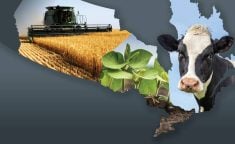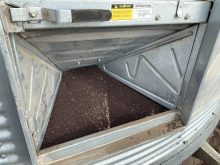China’s interest in using non-tariff trade barriers to bolster domestic domestic food production is on the public record, says a recently published paper on Canada-China canola trade, distributed by the Canadian Agri-Food Policy Institute (CAPI).
China’s Ministry of Agriculture (MOA) said in a letter it would monitor canola imports “to protect the (domestic) rapeseed industry…”
The letter also states: “According to the supply and demand situation of rapeseed and rapeseed oil, production and trade situation, China will scientifically set the import threshold (maximum import volume) of rapeseed and rapeseed oil and increase the monitoring and early warning indicators of imports that are damaging to the industry. It will strengthen non-tariff measures as well as apply anti-dumping or countervailing duties when the import volume exceeds the threshold, or when imports cause substantial damage to the domestic rapeseed industry.”
Read Also

Gene editing up a better canola crop: FEATURE
Gene editing techniques and maize genetic material may be the seed for more robust and stress tolerant canola plants. Canadian research is trying to make it happen.
The letter also says China will strengthen import quarantine regulations, according to the paper.
“Regarding the import of rapeseed, the state strictly enhanced the safety control measures for imported rapeseed, clarified the technical requirements for inspection and quarantine, and enhanced the research cooperation with China’s canola suppliers like Canada and Australia to protect the domestic rapeseed industry further.” the letter says. “In the next step, MOA will collaborate with related departments to continue to strengthen the quarantine inspection of imported rapeseed. It will strictly control the quality and safety risks of imported grain impurities, and, in a timely manner, report significant import quality and safety issues.”




















